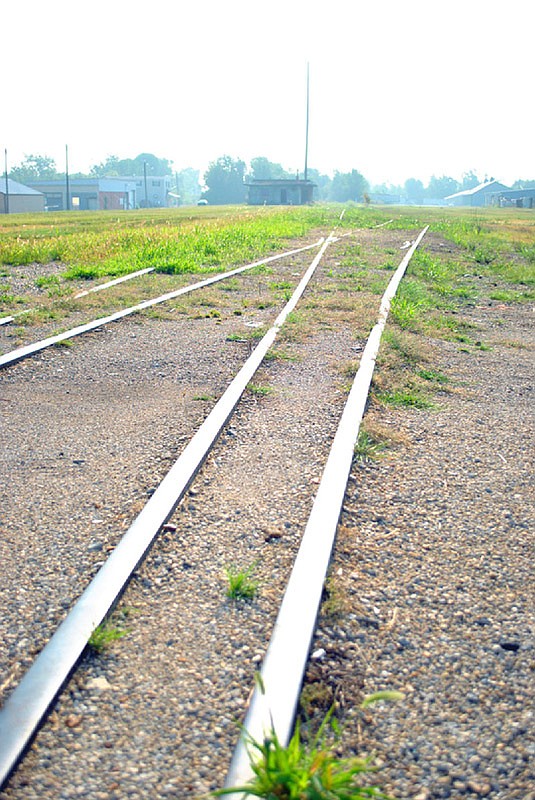Public input is being sought on a plan to convert an old rail line into a 200-mile hiking and cycling trail that could create a 460-mile loop and make Missouri a national leader in large network recreational trails.
Ameren agreed to donate the Rock Island Line corridor to the state in 2014, but the plan has since been put on hold while the Department of Natural Resources works to assess the property. Ameren is currently doing salvage work on the rail line, which involves pulling out tracks and ties, clearing brush and stabilizing the rail bed.
Department of Natural Resources spokeswoman Connie Patterson said last week the department will conduct an environmental and condition assessment once salvage work is complete.
"The Rock Island Trail Project stands to be a significant undertaking, and it is essential to understand the immediate and long-term liabilities, costs, benefits and opportunities specific to this project," Patterson said. "It is necessary for the department to take the time to do an assessment of the project and engage stakeholders and the communities who stand to be impacted."
The department is taking public input through an online survey, accessible at surveymonkey.com/r/YRQX56F, until Aug. 31. The land transfer has to be completed by Feb. 21.
The Missouri Rock Island Trail coalition has been involved in the process since discussions to convert the rail line into a trail began in January 2015. A 47-mile segment of the trail opened in December 2016, running from Pleasant Hill to Windsor, where it connects with Katy Trail State Park.
The next 144-mile section - the land currently under consideration by the state - ends near Beaufort, about 60 miles west of St. Louis. The trail would connect to Katy Trail State Park in Washington and create a nearly 460-mile loop across the state.
The loop is something MoRIT Executive Director Greg Harris said could be unlike anything in the world. Harris said any costs to develop the trail would be minimal since most of it is functional as is. He estimates work on the trail would include posting signage, laying gravel, barricading hazards and creating trail heads.
"We just want to make sure it's clear that this is just a golden opportunity for our state and the 20 communities that are located along the corridor," Harris said. "I think it would be a huge mistake to not accept it."
The plan has drawn support from the Rails-to-Trails Conservancy, a national advocacy group that helps communities convert rail corridors into trails.
Spokeswoman Brandi Horton said the Rock Island Trail expansion was so appealing because of its potential to serve as a national model for a large network recreational trail. Even if the state has to spend money to develop the trail, the economic benefits would far outweigh those costs.
"Time and time again, we've seen that when you invest in projects like this, the return on investment is strong," Horton said. "The Katy Trail has proven it, and we expect this to be the same."
There hasn't been unanimous support for the trail expansion, though. It hit a road bump during the regular legislative session when state Rep. Randy Pietzman, R-Troy, sponsored a bill that would have prevented the state from creating any new parks or expanding current parks by more than 10 percent until any outstanding maintenance is completed. The bill passed the House but died in the Senate.
While MoRIT supports Pietzman's concept, Harris said, the Rock Island Trail should be an exception because of the small window of opportunity to acquire it and the benefits it would have on the towns along the route - including Eldon, Versailles, Eugene, Freeburg and Belle in Mid-Missouri.
"This will be the best thing that's happened to these communities since the railroad left," Harris said. "The idea that you would just say, 'well no, we don't like economic development,' I think that's unacceptable."
The Missouri Farm Bureau Federation has said the trail would disrupt farms and is encouraging landowners to provide input on the survey, according to the St. Louis Post-Dispatch. There are also concerns about costs to repair tunnels and bridges along the route and the actual impact the trail would have on economic development in towns like Belle, according to KCUR.
State Sen. Mike Kehoe, R-Jefferson City, sponsored two bills during the legislative session, one of which would have exempted landowners from paying property taxes on land that intersects the rail bed. The other bill would have required Missouri State Parks to maintain a fence separating the rail corridor and people's property. Both bills failed to move through the Senate. Kehoe also said in 2016 he wouldn't support increasing state funding to develop the trail, which runs through his district.
MoRIT is holding a rally from 8-9 a.m. Friday at the Capitol to gain more support for the expansion. The keynote speaker will be Elizabeth Thorstensen, vice president for trail development at Rails-to-Trails Conservancy. The rally will be set against the backdrop of the Active Transportation Summit, an all-day event hosted by the Missouri Bicycle & Pedestrian Federation.
Even if the state doesn't have the capability to open and develop all 144 miles at one time, Harris said, small segments of the trail could be opened in phases during a long-term process.
"I think the important thing is to accept it and create a plan to make it happen over some period of time," Harris said. "We've got to do it."

